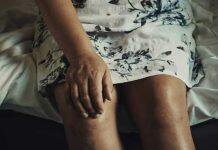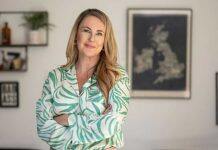

Researchers from the University of Cambridge have been recognised in the 2021 New Year Honours, in recognition of their outstanding contributions to society.
Professor Simon Baron-Cohen, Director of Cambridge’s Autism Research Centre and a Fellow of Trinity College, has been knighted for services to autism research and autistic people. He is one of the top autism researchers in the world, and is a Fellow of the British Academy, the Academy of Medical Sciences, and the British Psychological Society. He served as Chair of the NICE Guidelines for autism and is Director of the charity the Autism Centre of Excellence and Vice President of the National Autistic Society. He was President of the International Society for Autism Research. He created the first clinic worldwide to diagnose autism in adults and championed the human rights of autistic people at the UN. He is author of The Essential Difference, Zero Degrees of Empathy, and The Pattern Seekers, which have captured the public imagination.
Professor Baron-Cohen said: “This honour came as a complete surprise, and I accept it on behalf of the talented team of scientists at the Autism Research Centre in Cambridge, and on behalf of the Autism Research Trust, the charity that has supported us. The basic needs and human rights of autistic people and their families are still not being met by statutory services, due to insufficient funding, so we are creating a new charity, the Autism Centre of Excellence, to address this gap.”
Professor Usha Goswami, Director for the Centre for Neuroscience in Education, Professor of Cognitive Developmental Neuroscience and Fellow of St. John’s College, becomes CBE for services to educational research.
Her research focuses on children’s cognitive development, particularly the development of language and literacy. Her world-leading work on dyslexia led to the discovery that children with the disorder hear language differently, showing it to be a language disorder and not a visual disorder as previously thought. This significant finding is enabling the development of transformative new educational interventions, which will benefit millions of children with dyslexia worldwide.
“I am deeply honoured to receive this award,” said Professor Goswami. “I have been interested in children’s development since training as a primary school teacher and it is wonderful to have my research recognised in this way.
Professor Val Gibson, Professor of High Energy Physics at the Cavendish Laboratory, University Gender Equality Champion and Fellow of Trinity College, has been made OBE for service to Science, Women in Science and Public Engagement.
Her research interest is the search for new phenomena using particles containing heavy quarks, which are produced in copious amounts at the Large Hadron Collider, and hold the key to our understanding of the matter-antimatter imbalance in the Universe. From 2004-2008, she was the UK Spokesperson and PI for the LHCb experiment and had ultimate responsibility to deliver the UK contributions to the experiment. She is currently the Chair of the LHCb Collaboration Board, the decision-making body for the experiment, with representatives from 78 institutes across the world.
Professor Gibson said: “It is an honour to be recognised for all three of my passions: research into the most fundamental particles and forces of nature, including the mystery of why we live in a Universe made of matter and not antimatter; support for gender equality and diversity in science; and the public engagement activities I have undertaken over many years.”
Dr Michael Weekes from the Cambridge Institute for Therapeutic Immunology and Infectious Disease (CITIID) has been awarded the British Empire Medal for or services to the NHS during COVID-19. He developed a comprehensive COVID-19 screening programme for Cambridge University Hospitals healthcare workers, Cambridge University staff and students.
Dr Weekes said: “I’m deeply honoured to have had the chance to be part of the team that set up COVID testing for Cambridge University Hospitals. I’d particularly like to acknowledge the contribution of Steve Baker, Rob Howes and Giles Wright, who played vital roles in testing and organisation. I hope that vaccination will soon mean that hospitals become even safer places to work and be cared for.”







































